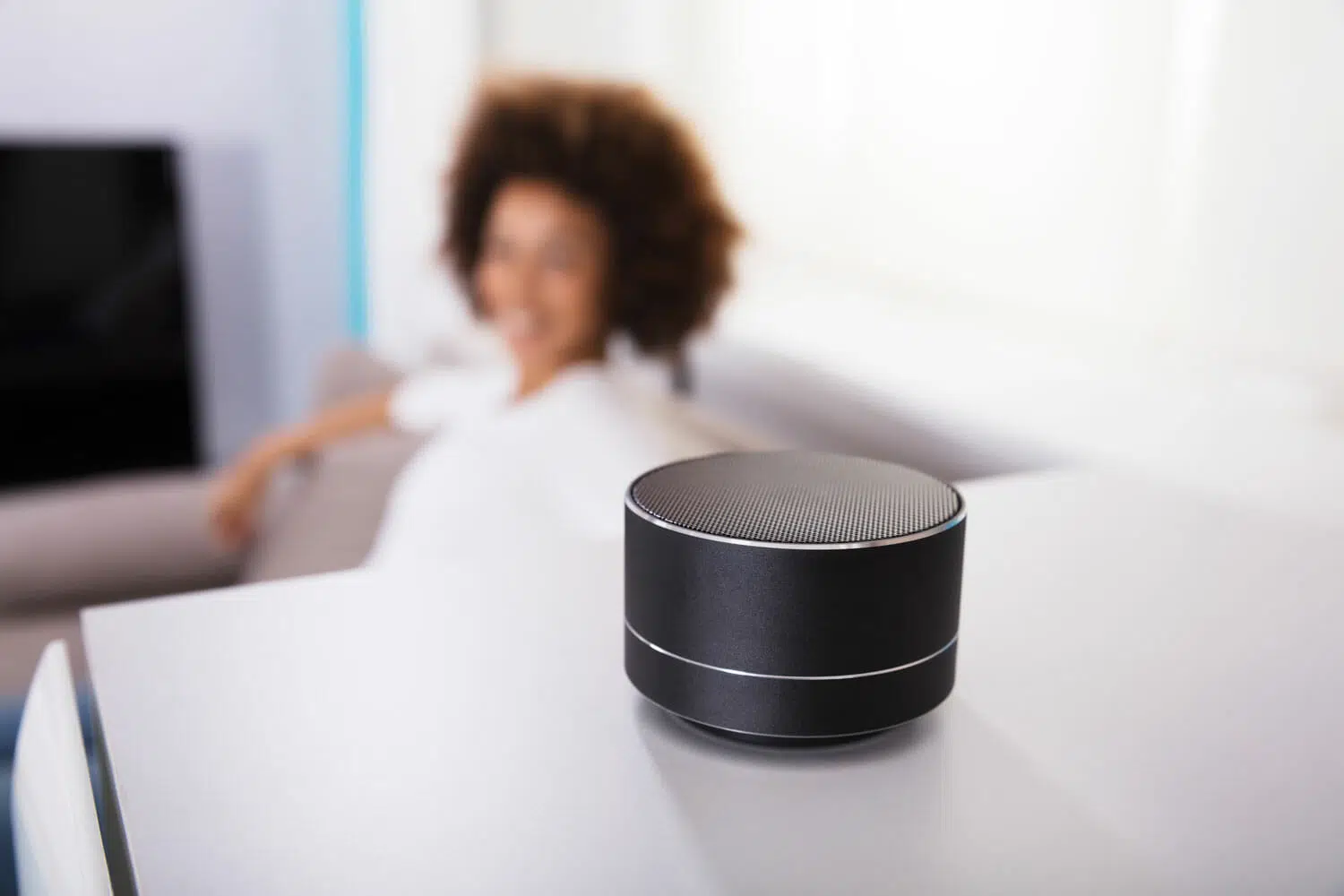They have ordered cat food after hearing a commercial on television. They have secretly recorded a family’s conversation and sent it to a family contact. One of them has even intruded into a business meeting to order a dating game for a woman not wanting or needing a dating game. A few more of these anecdotes make us wonder if the term “smart speakers” is accurate. These electronic household voice assistants seem a bit dense when they order tee shirts at random. Can they affect your divorce or family law case?
Your Smart Speaker … She’s Listening
Call her Computer, Alexa, OK Google, Amazon, or Echo — it does not matter; she is listening, whether she came from Google or Amazon or from the far corners of the galaxy. She is a voice-controlled wireless speaker and she stores your voice profile in the cloud.
Say her Wake Word and she begins recording and delivering to the cloud whatever you ask. She then does what any WiFi device does, and scours the internet for an answer, which she voice synthesizes back to you. The more you talk to the devices, the better your search results.
Taking Control of Your Smart Speaker
You have manual control over your smart speaker. For Amazon’s products, says Popular Science, you can simply push the microphone button on the top of the device and she stops listening out for her Wake Word.
Want a second option? Use your smart phone to access the app you had to install to get your device to work in your home network. You can adjust settings there.
The Third Option? Unplug the dang thing!
Prevention by shutting a smart speaker down may be helpful when you realize you and your spouse may be getting into dark waters about a divorce. You want no record of it.
What if you want to go back, after the fact, after an unexpected angry exchange, and ensure you have left no digital, audio footprint? Your phone’s app will take you into settings to manage voice recordings, delete history, and more.
In a similar vein, never connect security systems of your home to your smart speaker. A WiFi front door lock could be opened by a burglar (or a wife you’ve recently separated from) simply saying, “Alexa, open the front door,” say security specialists Symantec.
On the other hand, your device may be helpful in capturing something your wife said that could become evidence. But can voice recordings preserved in the cloud be used in court?
Can Smart Speaker Recordings be used as Evidence?
Could your smart speaker’s recordings be used against you in court? Possibly, but it is new territory. Police in Arkansas did subpoena an Echo’s recordings in a murder investigation. The unreasonable search and seizure protections of the U.S. Constitution’s Fourth Amendment will get a real test as more court challenges arise.
As of now, some 18 percent of Americans own smart speakers (according to Billboard), and Virginia’s divorce rate is holding relatively steady at roughly 9 percent of the state’s 30-year-olds (says Zippia). This means the odds are good that smart speakers and divorce will collide in a courtroom in the near future.
Those Tech Crunch folks responded to the uneasy sense of eavesdropping by resorting to The Third Option: they unplugged the device during a cocktail party.
Smart Speakers Make Your Private Business Public
You may think you can enjoy the quiet use of your home shielded by walls, but introducing a smart speaker makes your private business public, on the cloud and potentially in neighbors’ homes. Symantec’s security experts produced a report on security risks of smart speakers, and they caution about all manner of risks:
- Police can subpoena the snippets recorded to the cloud and any other conversations so recorded
- Technical flaws that leave the speaker constantly on and recording to the cloud
- Children or other devices activating the device unknowingly
- Neighbors receiving your transmissions
- Strangers interjecting commands to your system from outside your home
- Signals, sent in ultrasound (undetectable to human ears), the devices can hear and obey
Well, That Was Fun!
Smart speakers are smart enough to be wise guys. You can ask Alexa some surprising things and get surprising answers, like these:
- Alexa, what does the fox say?
- Alexa, where is Chuck Norris?
Have a Google device? Ask these questions:
- OK Google, tell me about Alexa
- OK Google, is the cake a lie?
Get Connected to The Firm For Men
You can ask a lot of weird things of these devices, but cannot ask smart speakers for accurate, state-specific legal advice. You need a real Virginia family law practitioner to get accurate, reliable information. You may prefer to meet your attorney in the law offices, where you can be assured no smart speaker is plugged in, to preserve attorney-client privilege and confidentiality.
And remember, whatever you say, the walls — or at least the smart speakers — really do have ears.
Please use a regular telephone to call The Firm For Men at 757-383-9184, or contact us online. When you do call, you will be relieved to know we have nobody on staff named Alexa.

